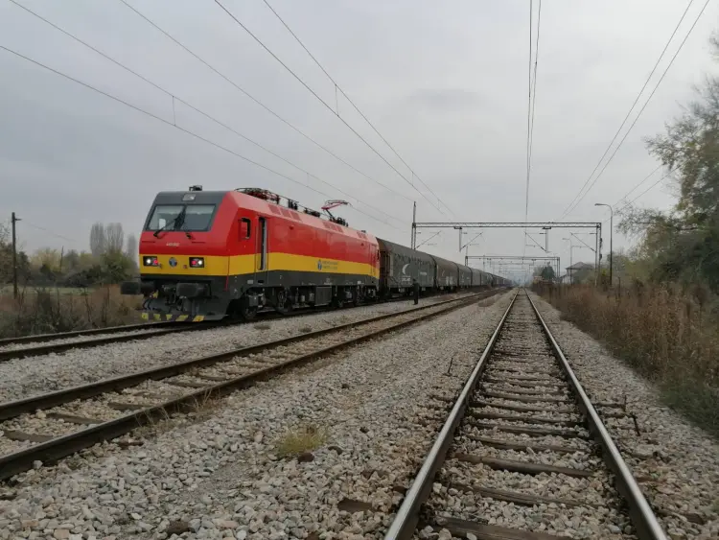 The European Investment Bank (EIB) is proposing a EUR 299 million financing for the modernisation of the third section of North Macedonia rail corridor VIII. EUR 500 million is the value of the project which is under the EIB appraisal and covers the construction of the Eastern section of the corridor linking the city of Kriva Palanka to the Bulgarian border.
The European Investment Bank (EIB) is proposing a EUR 299 million financing for the modernisation of the third section of North Macedonia rail corridor VIII. EUR 500 million is the value of the project which is under the EIB appraisal and covers the construction of the Eastern section of the corridor linking the city of Kriva Palanka to the Bulgarian border.
The 24 km Kriva Palanka – Deve Bair, the border with Bulgaria, section has an estimated investment of EUR 420 million of which EUR 321.7 million financing is already committed. Through the Western Balkans Investment Framework (WBIF), the project received a EUR 155.6 million grant and a previous EU grant of EUR 64.5 million and it is estimated that the EIB and EBRD would provide EUR 97.4 million each. North Macedonia will contribute with EUR 4.2 million. In brief, the project received EUR 154.4 million grants and EUR 194.7 million in loans.
The Eastern Rail Corridor VIII section in North Macedonia is divided into three sections totalling 89 km and includes the 30.8 km Kumanovo – Beljakovce section (section I, estimated at EUR 48.9 million), the 34 km Beljakovce – Kriva Palanka (section II, estimated at EUR 145 million) and the 24 km Kriva Palanka – Deve Bair at the border with Bulgaria (section III, estimated at EUR 420 million). The construction works for sections I and II (covering Kumanovo – Kriva Palanka connection) have been launched in November 2022 and are expected to be completed in 2026. Strabag is implementing the works for the Kumanovo – Beljakovce section (I) and Gülermak is responsible for the modernisation of Beljakovce – Kriva Palanka section (II) under a EUR 155 million contract. The works for the first two sections are implemented under EUR 200 million contracts.
The section III project, currently assessed by the EIB, would be completed in 4 years from commencement – expected in 2030.
WBIF has provided a grant of EUR 82 million for technical assistance and construction works, out of EUR 70 million EU grant, for the construction of 34 km Beljakovce – Kriva Palanka section including the rehabilitation of 2 stations and three stops. The project for this section also involves rail bridges and over/underpasses, 5.5 km-long tunnels and the installation of new signalling and telecommunication systems. Following completion, the rail line will shorten the connection between North Macedonia and the Black Sea by approximately 200 km.
The Eastern section of the corridor (Kumanovo – Bulgarian border) is part of the indicative extension of the TEN-T Core Network to the Western Balkans. This is a priority project part of the EU Economic and Investment Plan (EIP) for the Western Balkans, the Flagship 1 covering the connecting from East to West. The EIP has a EUR 9 billion grant commitment from the EU with an expected EUR 30 billion investment in public and private investments. Under the EIP, in February 2022, the European Commission has unveiled a EUR 3.2 billion investment to support 21 transport, digital, climate and energy connectivity projects in the Western Balkans. In the transport sector, the investment package will allow the construction of important road and rail connections including Mediterranean, East-West, and Rhine-Danube corridors as well as the railway line between Skopje and Bulgarian border. The cross-border rail connection between North Macedonia and Bulgaria includes the electrification, modenrisation and construction works which will significantly reduce travel time from Skopje to Sofia, increasing the freight transport capacity and allowing modal shift.
North Macedonia rail corridor VIII covers the reconstruction of the 103 km line from Skopje to Kičevo providing connection to Albania – where requires the modernisation of the existing sections and construction of a new 66 km section – and Bulgaria, which has almost completed the modernisation of the entire line on its territory. The modernisation of Skopje – Kicevo line project has received a EUR 301,500 WBIF grant.
Share on:



